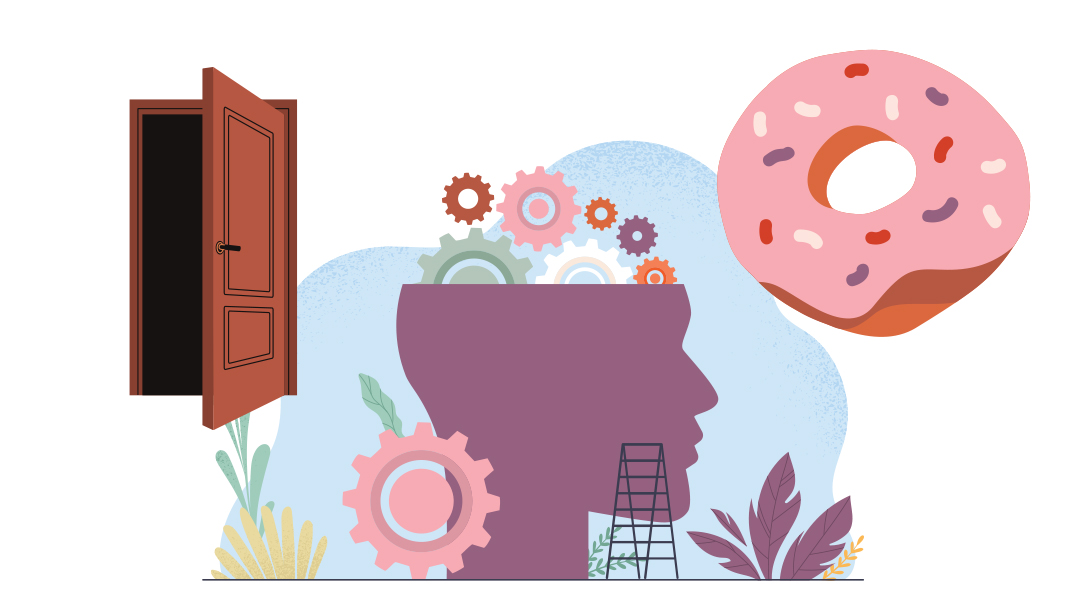Making Sense of Sensory Issues
| November 28, 2023The neurodivergent brain often has difficulty weeding out unnecessary information or doesn’t take in enough information

Making Sense of Sensory Issues
Hadassah Eventsur
Chavi is sitting across from her friend Tzippy, who is sipping a latte. Tzippy is venting about her sleepless night, but Chavi’s eyes are fixed on the fly buzzing in the corner of the room. She knows her friend’s lips are moving, but she isn’t hearing a word.
*
After a long day, Gitty finally slumps down on the couch with a book. Her sweet toddler approaches from behind and taps her on the head with a paper towel roll. Gitty feels like she was hit with a ton of bricks and reacts furiously.
*
Esti is so happy for her friend who is marrying off her first child. She wants to really participate in the simchah, but she finds herself obsessing over her itchy stockings and the stiff fabric of her dress.
*
Dina finally has a day off and is excited to browse the mall, only to be overwhelmed by the smell of popcorn as she opens the door. She begins to gag and promptly leaves the building.
These are all examples of what it’s like to live with sensory processing disorder (SPD), a disorder that is common in the neurodivergent population. At the basic level, SPD means that the brain cannot sort or process some or all of the information it receives from our senses.
Our brains are constantly receiving information from our environment every minute of every day. We take in information from our eyes (visual), ears (auditory), nose (olfactory), muscles and joints (kinesthetic), and skin (tactile), and we use those sensations for daily functioning. The neurotypical brain is generally able to easily and swiftly weed out unnecessary sensory information that comes in, while allowing the important information to make it to its conscious awareness.
But the neurodivergent brain often has difficulty weeding out unnecessary information or doesn’t take in enough information. If our brain is struggling to filter what’s unimportant from our environment, we can experience this excess information as pain, discomfort, or threat. And if we are taking in too little information, we can miss important cues that affect relationships and even safety.
It’s important to keep in mind that there is a spectrum of how different people are affected by SPD. Some people will have sensitivities to certain kinds of sensory input (e.g., auditory but not tactile), while others will be highly sensitive to multiple types. And what makes it even more confusing is that the input one is highly sensitive to on a specific day can be under-processed the next day. The way we process information can also be impacted by changes in our circumstances, and major life events or trauma.
While sensory processing difficulties often decrease with age, they by no means go away. And many women never receive a proper diagnosis to begin with. Most women are experts at masking these issues. We put up fronts and tell ourselves to just get it together. But underneath it all is shame and relentless self-judgment.
If you feel that you may have a sensory processing disorder, talk to your doctor or an occupational therapist so you can get an in-depth evaluation and develop a treatment plan. Awareness and a plan of action is the first step to living your best life.
Hadassah Eventsur, MS, OTR/L is a licensed occupational therapist with over 20 years of experience, and a certified life coach in the Baltimore, MD area.
Choice, Not Control
Shira Savit
Chanukah, with its plethora of gatherings, leads many women to wonder: How do I gain control over my eating? How do I control myself around all the triggering Chanukah food?
Here’s a suggestion: Don’t strive for control; strive for choices. Aiming for self-control often leads to an all-or-nothing mentality: Either I have it, or I don’t. When we have self-control, we feel great, but when we don’t, we feel disempowered. When we embrace the notion of “choices,” however, it’s not about being good or bad, right or wrong, better or worse.
For example, when faced with a tempting caramel fudge doughnut, thinking I need to have self-control can lead to feelings of failure and trigger more eating. However, we can choose choices: I am not limited to only one way. I can choose to have a little piece, choose to have some later, choose to distract myself, choose to have a piece of fruit, choose to have none, choose to address my underlying emotional needs, or choose to enjoy a whole doughnut.
Making choices might not lead to rapid weight loss, but it empowers us with a sustainable mindset toward having a healthier relationship with food. Eliminating some of the struggle around food will hopefully allow us, with Hashem’s help, to be more present on Chanukah, and tap into the beauty and joy of the chag.
Shira Savit, MA, MHC, INHC is a mental health counselor and integrative nutritionist who specializes in emotional eating, binge eating, and somatic nutrition. Shira works both virtually and in person in Jerusalem.
Show Them the Door
Sara Eisemann
The threat of being swept away by the intensity of our feelings is real, and self-regulation is the order of the day. We need to keep our emotions manageable.
One powerful way to do this is by treating our feelings as guests. When we say, “I am angry,” it becomes defining and definitive. If we say, “It looks like anger is at my door,” we remind ourselves that we can choose whether or not to let it in and how long it can stay.
Sometimes intense emotions come to our door unannounced. Let’s not forget that we are in charge of our internal worlds, and only we can grant permission to enter.
Sara Eisemann, LMSW, ACSW, is a licensed therapist, Directed Dating coach, and certified Core Mentor.
(Originally featured in Family First, Issue 870)
Oops! We could not locate your form.







